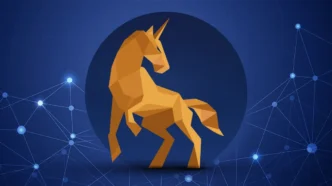Europe’s tech scene is booming — and it’s not just about unicorns anymore. Billion-dollar companies like Klarna, Zalando, and Delivery Hero are now spawning a powerful second wave of startups. According to a new report by Accel and Dealroom, over 360 unicorns across Europe and Israel have given rise to 2,027 startups, launched by former employees turned founders.
Local Impact: Unicorns Reinforce City Startup Hubs
Unicorn alumni are strengthening city-based ecosystems. The report shows:
- 53% of spinouts are founded in the same city as their unicorn origins.
- 60% of these startups raised more than $1M, with a third raising $10M or more.
Where It’s Happening
- London leads with 62 unicorns that birthed 327 startups — 62% stayed local.
- Berlin’s 27 unicorns produced 283 startups.
- Paris’s 29 unicorns generated 264 startups — 69% remained in the city.
Experts like Maria Palma (Freestyle VC) and Thomas Bigagli (Plug and Play) confirm that unicorn spinouts create talent density, capital concentration, and ambition in hubs like London, Paris, Berlin — and now Vilnius, Barcelona, Lyon, and Marseille.
Remote Work and Decentralization Expand Access
Contrary to earlier patterns, startup talent is no longer limited to major capitals. Dr. Hendrik Brandis of Earlybird Venture Capital notes that 85% of latent founders live outside traditional hubs. Thanks to remote work, smaller cities like Manchester, Cambridge, and Munich are emerging as new innovation centers.
Europe’s most iconic unicorns are now “founder factories,” spinning out wave after wave of startups:
- Klarna
- Spotify
- Zalando
- Skype
- Delivery Hero – 43 spinouts
- N26 – 30+ spinouts
Why It’s Happening
Niklas Östberg (CEO, Delivery Hero) says their entrepreneurial culture prepares employees to launch businesses. N26 echoes this, crediting a workplace that fosters innovation and risk-taking.
Even VCs are feeling the ripple effect. Carolin Wais (Plug and Play) calls this a new phase of “unicorn founder flywheels,” where talent, capital, and networks compound across the ecosystem.
Angel Flywheels and Ecosystem Ignition
Spinout founders are reinvesting — not just with capital, but also by becoming angels themselves. This mirrors Silicon Valley’s famed “PayPal Mafia”.
Examples:
- Monzo alumni investing in each other’s ventures.
- Telerik’s $262M exit (2014) helped ignite Bulgaria’s ecosystem, spawning Payhawk, the country’s first unicorn.
“Liquidity events give founders the capital and confidence to launch or invest locally,” says Konstantin Gnyp (Runa Capital).
Challenges: Unicorn Migration and Funding Gaps
Despite the success, Europe faces growing pains:
- Many unicorns relocate to the US or UK, chasing capital and larger markets.
- Late-stage funding remains a challenge in Europe.
- Policy makers are now launching national and pan-European funds to keep unicorns rooted.
What’s Next for Europe’s Tech Ecosystem?
Cautious Optimism from VCs
Dr. Brandis believes funding will tighten in the short term due to limited VC supply. Investors are prioritizing capital efficiency and scalable models over hype.
Matt Cooper (Exceptional Ventures) cautions against over-romanticizing the unicorn-to-founder pipeline. “Not everyone becomes a visionary. But they learn how to raise funds, build teams, and access networks — and that matters.”
Healthtech and AI as Next Growth Frontiers
Agur Jõgi (Pipedrive) sees healthtech as a rising wave, fueled by aging populations and AI breakthroughs. Meanwhile, Luis Llorens (Plug and Play) notes that the next generation of unicorn founders will be laser-focused on monetization and operational excellence.
“Don’t expect fintech veterans to suddenly launch healthtech unicorns,” says Cooper. “Each wave will come from people already close to the space.”
Conclusion: Unicorn Alumni Are Europe’s Startup Superpower
Europe’s unicorns are proving to be more than billion-dollar exits — they are multipliers, giving rise to thousands of new companies and catalyzing startup growth across the continent.
As ecosystems expand beyond the big three — London, Paris, and Berlin — and into emerging cities, Europe’s tech future looks decentralized, resilient, and globally competitive.













